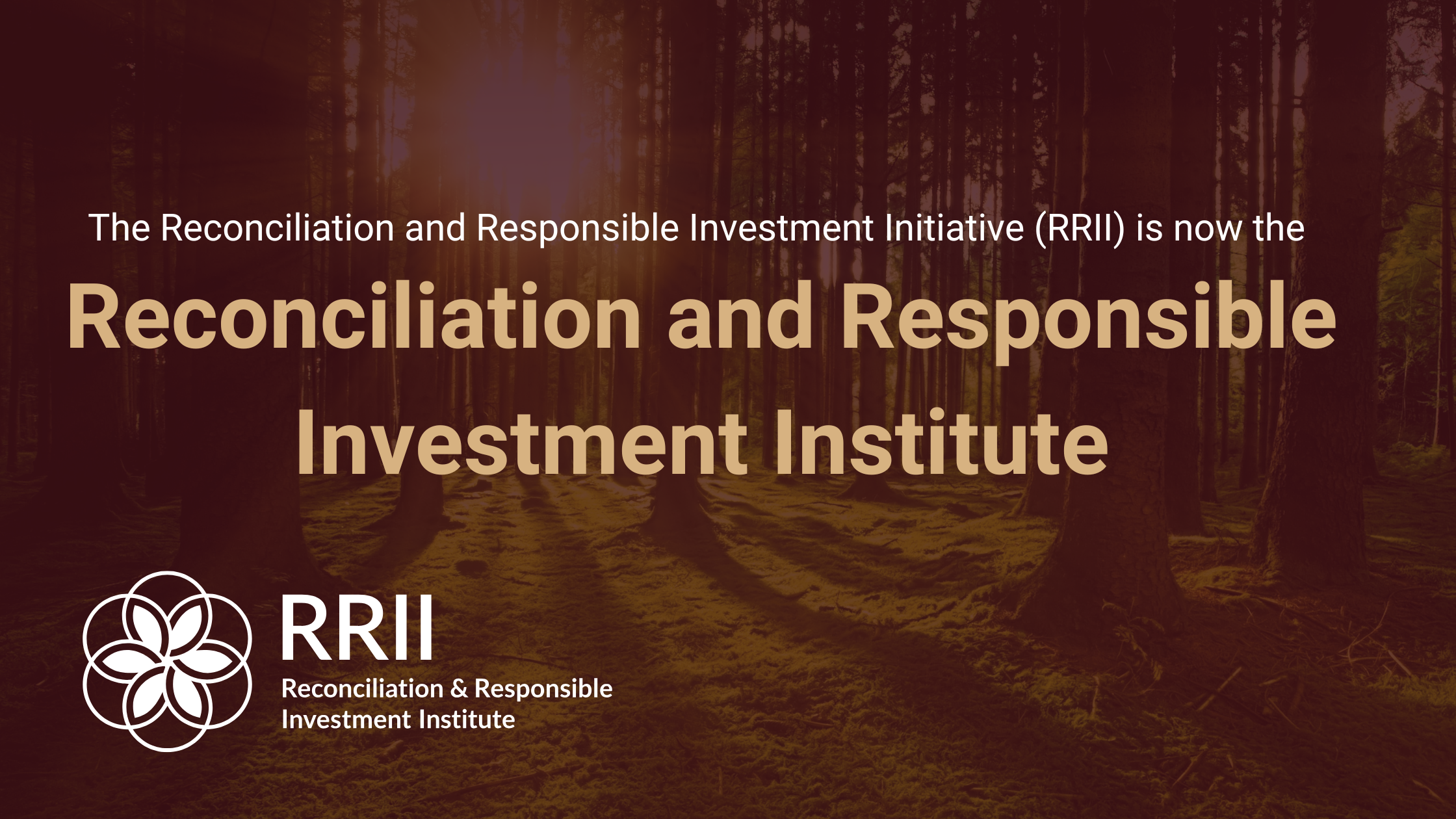Today, the Reconciliation and Responsible Investment Initiative (RRII) published a new discussion paper, Teachings of Sustainability, Stewardship, & Responsibility: Indigenous Perspectives on Obligation, Wealth, Trusts, & Fiduciary Duty.
This research was authored by Dr. John Borrows, Canada Research Chair in Indigenous Law and Professor at the University of Victoria, and Research Associate Shayla Praud, Canadian Common Law and Indigenous Legal Orders (JD/JID) Candidate. RRII is pleased to release the research today together with The Circle on Philanthropy and with support from the Qube Foundation.
Overview
In recent decades, settlement processes, such as treaty and land claim agreements, have triggered the flow of financial capital into Indigenous communities, some of which is managed through trusts. Such trusts are intended to enable Indigenous trustees to manage and oversee financial assets for the benefit of their communities. In the process, trustees are bound by their duty as fiduciaries, including a duty of loyalty and a duty to act in good faith to the trusts’ beneficiaries, which often comprise both current and future generations of community members. Yet oftentimes, many Indigenous trusts’ fiduciaries, including trustees and investment advisors, focus primarily on securing and maintaining steady financial returns.
This research investigates how Indigenous law can inform fiduciaries’ governance of Indigenous trusts and investments. Our team explored various Indigenous laws embedded in written documents of the Nisga’a, Gitxsan, Cree, Anishinaabe, Mi’kmaq, Nlaka’Pamux, and Kwanlin Dün, as well as the Māori in Aotearoa, New Zealand. The discussion paper highlights notions of stewardship, loyalty, responsibility, good faith, obligation, and wealth within traditional laws.
Conclusions
Ultimately, the research underscores that Indigenous concepts of fiduciary duty include obligations to the land, water, plants, and living creatures, as well as community members as beneficiaries. This research suggests that Indigenous legal orders offer critical insights for ensuring the effective stewardship of Indigenous peoples’ collective wealth. Canadian and provincial laws must be reconciled with Indigenous laws in order to guide the effective investment of Indigenous peoples’ financial assets.
Get in touch
To discuss this research and its implications further, please get in touch with Katie Wheatley, Project Lead, RRII.


